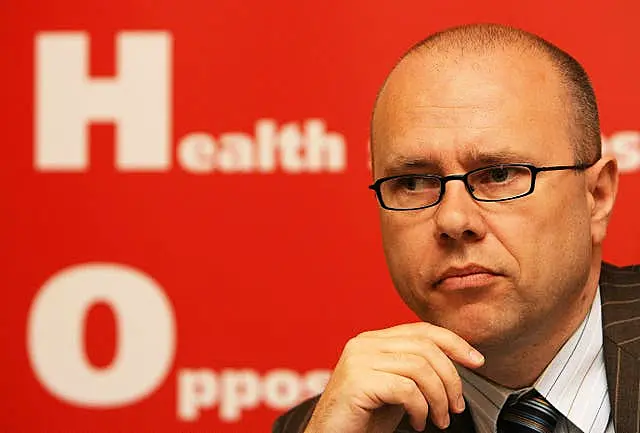Minister for Public Expenditure Paschal Donohoe has said the Government’s offer to public sector workers was worth just under €2.9 billion and would equate to a pay increase of up to 12 per cent for some civil servants.
Union officials have expressed “disappointment” with the Government’s offer on public pay, after talks ended without agreement in the early hours of Thursday.
The negotiations were adjourned between 2am and 3am to allow for a “period of reflection”, an official said.
Union officials said they are ready to begin balloting members on industrial action, following the finalisation of wording on Thursday.
Speaking to reporters on Thursday, Mr Donohoe said the multi-billion euro offer would mean an average 8.5 per cent increase for public sector workers over two and a half years, with the lowest paid receiving up to 12 per cent.
He said the offer to unions was “significant” and “very fair”.
The general secretary of the Forsa union, Kevin Callinan, said: “I’m afraid to say that the opening offer from the Government side was extremely disappointing and the fact remains that there’s a substantial gap between the parties in relation to pay.”
Mr Donohoe said he was “disappointed” there had not been an agreed outcome.
He said he gave an early commitment, “in good faith”, to repeal remaining FEMPI legislation in an effort to generate goodwill and remove any barriers to achieving a multi-annual agreement.
He called on trade unions and associations to take a “period to reflect” and said the Government remains available to enter into further discussions “at the appropriate time”.
He said: “This was a very significant proposal that was put forward by the Government with the objective of reaching agreement.
“It is the latest effort that I have made in a process that has taken many, many months to find a way to reach agreement on public pay within our economy and within our country and to do so in a multi-year way.”
Mr Donohoe said he had also given a commitment to work on “smaller industrial relations issues” that are important to the unions.

The officers of the Public Services Committee (PSC) expressed concern that the offer illustrated a lack of preparedness from the Government to complete a “sustainable and robust multi-year pay deal”.
Mr Callinan said the offer did not meet the cumulative gap between wages and inflation, which the PSC puts at 19 per cent over the last three years.
He said the initial pay offer was 7 per cent with 1.5 per cent payable in March this year, adding this would fail in any ballot of members.
“Union officials said a further 1 per cent comes under a local bargaining clause, which may only apply to some members and would not be fully paid until end of the the 30-month agreement in June 2026,” he said.
“The Government has effectively undermined its own approach to negotiating a multi-year public sector pay agreement in a number of ways.
“In contrast to its recent measures to address the cost-of-living challenge on the National Minimum Wage and social protection payments, where it has demonstrated a real pragmatism, its approach to completing a public sector pay agreement lacks credibility.”
John King of Siptu said “The initial offering – which (before deductions) would have put little more than an average of just €5 per week in the wages of low-income public sector workers, and €10 per week in the wages of those on middle incomes in the first year – failed the basic test of creating a robust agreement in the face of a continuing cost-of-living crisis.”
Phil Nií Sheaghdha of the Irish Nurses and Midwives Organisation said: “The tabling of that pay offer followed months of delay before the process of negotiations got under way last year, painfully slow progress over the course of 11 meetings in November and December, consequently allowing the previous agreement to lapse at the end of 2023.
“All of these factors really undermine the credibility of the Government’s approach to doing a deal and, as we adjourned this morning, a significant gap on pay measures between both sides remains,” she said.
John Boyle of the Irish National Teachers’ Organisation said: “We remain focused on returning to the negotiations to ensure we can complete a deal that is robust enough to endure the 30-month period envisaged,” he said.
While union officials said it may be several days before talks are reconvened, the Minister said it was up to the experts at the Workplace Relations Commission to set a date.







